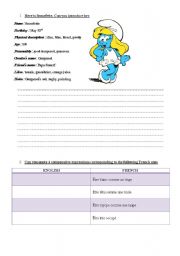
|
Introducing a third person - Idiomatic expressions
As Smurfette comes from a comic strip, it�s interesting for yound children to introduce her.
The idiomatic expressions will make them realise that our French expressions do not reflect the sames images as in English.
Level: intermediate
Age: 13-17
Type: worksheet
Downloads: 1
|
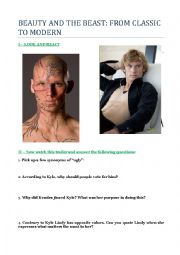
|
Beauty and the Beast
Here is a worksheet to deal with fairytales. I started with working on the movie trailer "Beastly". Then students will have to analyse a poem by O�hara to end up pondering over the fairytales topic. My students loved it. Enjoy !
Level: intermediate
Age: 12-17
Type: worksheet
Downloads: 11
|
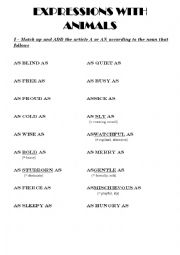
|
SIMILES with ANIMALS
Let�s discover some famous similes with animals. Pupils will then learn another way to compare with as...as...
Level: intermediate
Age: 12-100
Type: worksheet
Downloads: 7
|
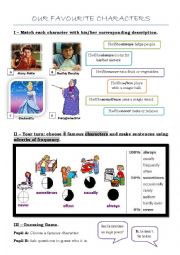
|
Our favourite characters
This document is meant to make pupils understand how to use frequency adverbs. There is a matching exercise first, then it�s their turn to make sentences on their own. Eventually they will try to learn how to use frequency adverbs in a guessing game.
Level: elementary
Age: 11-100
Type: worksheet
Downloads: 28
|
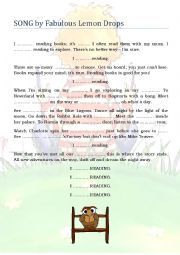
|
I love reading
I found this song on youtube and I wrote the lyrics down with blanks. So pupils have to find them by listening to the song. It�s a good exercise to revise the structure of LIKE and LOVE with a verb in ING. Besides they meet some famous characters like Hook and Peter Pan or Harry Potter. Worked very well with my pupils, they loved to sing it afterw...
Level: elementary
Age: 11-100
Type: others
Downloads: 22
|
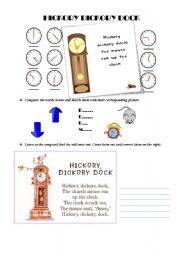
|
Hickory Dickory Dock
Through this nursery rhyme "Hickory Dickory Dock", pupils will acquire new technical vocabulary and will work on telling the time.
Level: elementary
Age: 7-12
Type: worksheet
Downloads: 36
|
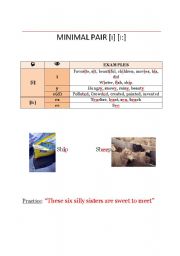
|
Minimal Pair [i] [i:]
This sheet can me made by the pupils everytime minimal pairs are at stake. It can also be used to revise the sounds of English.
Level: intermediate
Age: 12-17
Type: activity-card
Downloads: 0
|
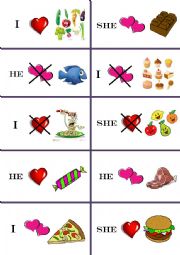
|
Speaking cards
New cards this time to speak about food. Pupils exchange their tastes in terms of food in pairwork.
Level: elementary
Age: 10-100
Type: activity-card
Downloads: 22
|